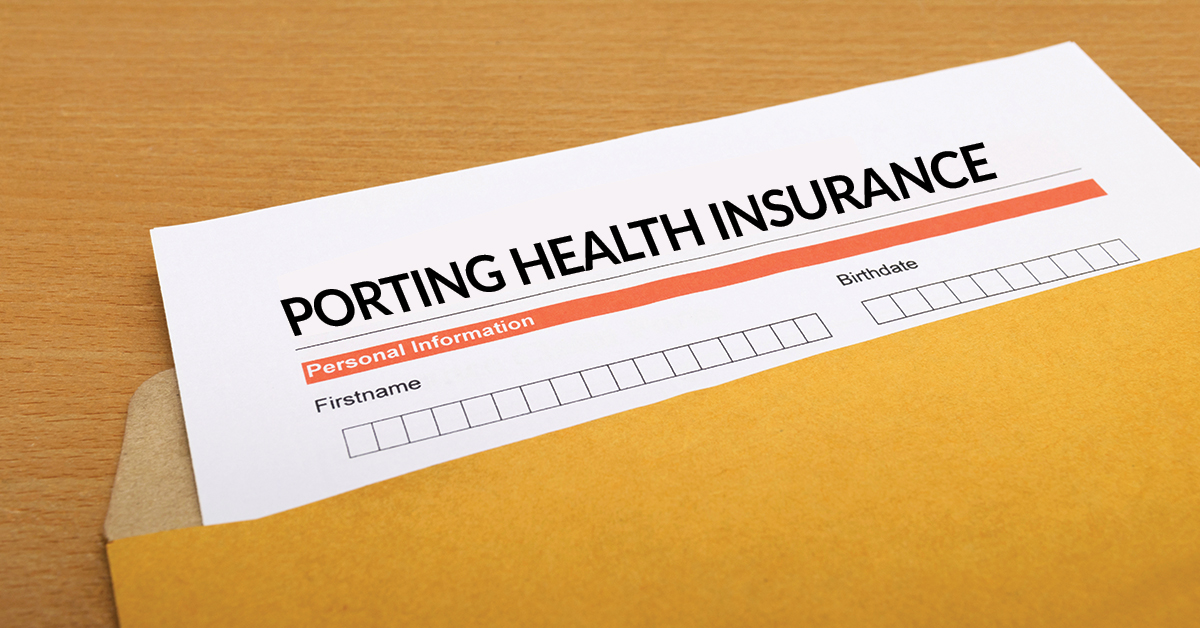When is the right time to port your health insurance policy? Take a look at this article and find out crucial details related to porting your health insurance policy.

The health insurance market is flooded with so many options that picking the right policy is difficult. Having bought an unsuitable policy, many people stick with it because of certain benefits that they do not want to lose.
Luckily, since 2011, it is possible to move to a new policy or insurer, without losing these benefits. This is insurance portability. Recently, at a party, I learnt about portability from a friend, Raj. He was more than willing to share his experience.
Listening to him, even I chose to port my health insurance policy. Here is how it went!
Applying for Portability
On inquiring at my insurer’s branch office, I learnt that portability applications must be submitted at least 45 days before the renewal date of the existing policy. I collected the porting form and started arranging the required documents. You must maintain all the documents from your existing policy. Missing documents can mean a loss of benefits on porting.
Underwriting
I recollect Raj telling me that porting was free. I would just have to keep paying the insurance premium. But, on applying for portability to another similar policy, I realized that my premium amount would change. I would have to undergo certain medical tests again and the premium would be based on those results. My premium was sure to increase. After all, I was older and less healthy than when I tested for my earlier policy, eight years ago. Insuring me now would be a much higher risk for the insurance company than it was back then.
Porting at 45+
Insurers follow stringent assessment procedures for people aged 45 years and above. Moreover, they are generally unwilling to port people in their 60s. If you are above 70, they will probably turn you away. If you are in your 60s, you could still port your policy. However, you would have to pay a high premium. Porting is much cheaper for the young.
No Claim Bonus
The insurance company completed the underwriting process and contacted me. They said that my new premium would be higher than what I had been paying (that’s what age does to your insurance policies)! Thankfully, in my eight years with the old insurer, I had never had to make a claim. So I accumulated a no-claim bonus of Rs. 65,000. A no-claim bonus is a complementary increase in your insurance cover, as appreciation from the insurer for not making a claim. This increased my policy cover to Rs. 3,65,000.
However, on porting, the new policy disregarded the no-claim bonus. The new insurer only looks at the final value of your cover and charges a premium accordingly. Since the cover is higher than before, the premium is also higher. Had I ported some years ago, my no-claims bonus would have been lower. This would have translated to a lower premium on porting.
Waiting Period Clause
I agreed to the high premium anyway, because I needed better services. It’s important to understand the benefits you earn with porting. The waiting period clause is one such advantage! Since you have already completed your waiting period with your old insurer, you don’t have to wait for pre-existing diseases to be covered with the new insurer. With portability, you can transfer the perks earned (especially that linked with the waiting period clause) from the old insurer to the new one!
Hence, if you are stuck with a bad insurance policy, the time to port is now. It is much easier and cheaper to port when you are young. As you age, your underwriting performance will decline and premiums will increase. Besides, you may not have the resources to pay a fat insurance premium later and you definitely need a good policy to support you. Note that the decision to port your best health insurance policy lies entirely with the insurer. Thus, get all your doubts cleared before you choose to port.






